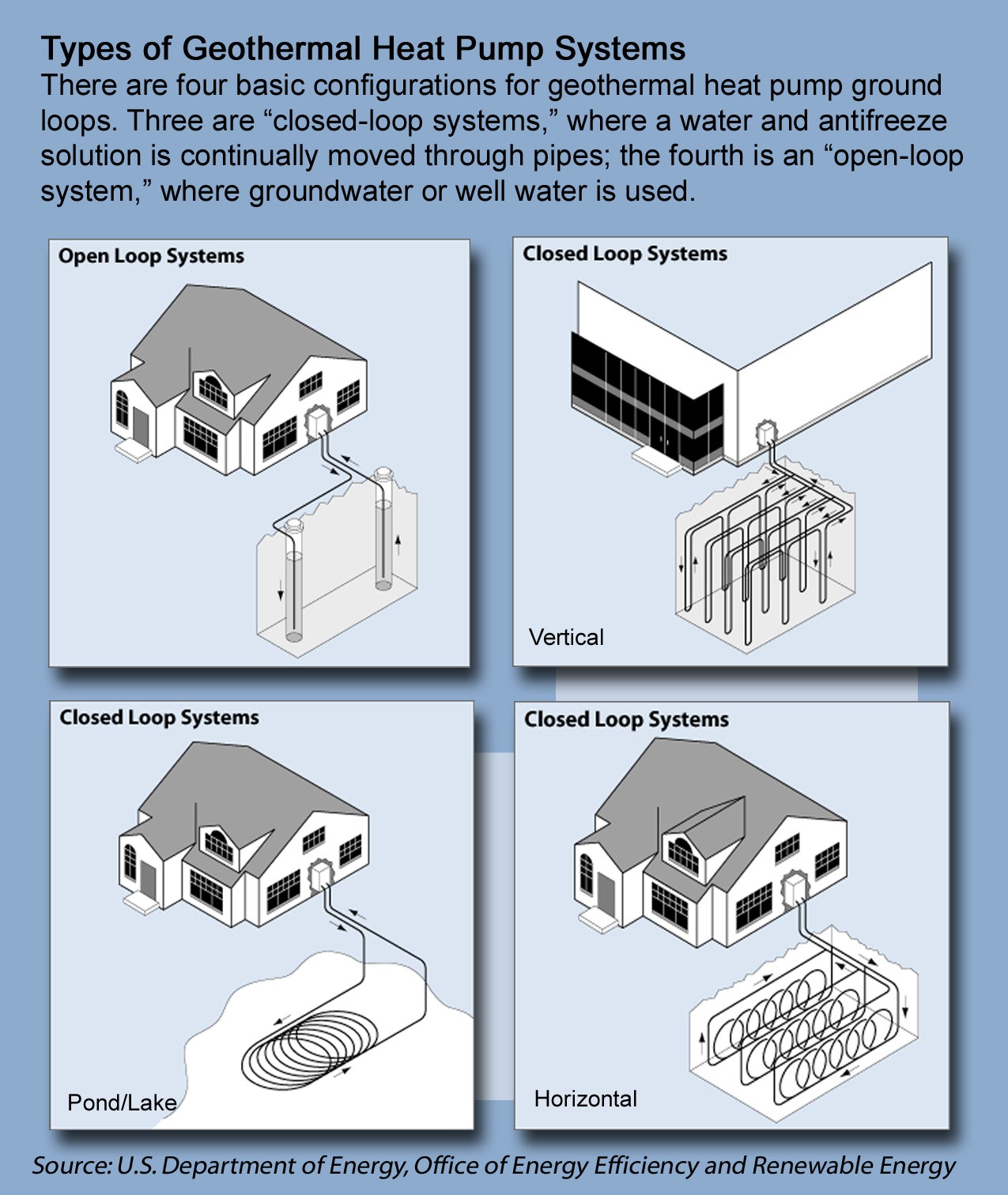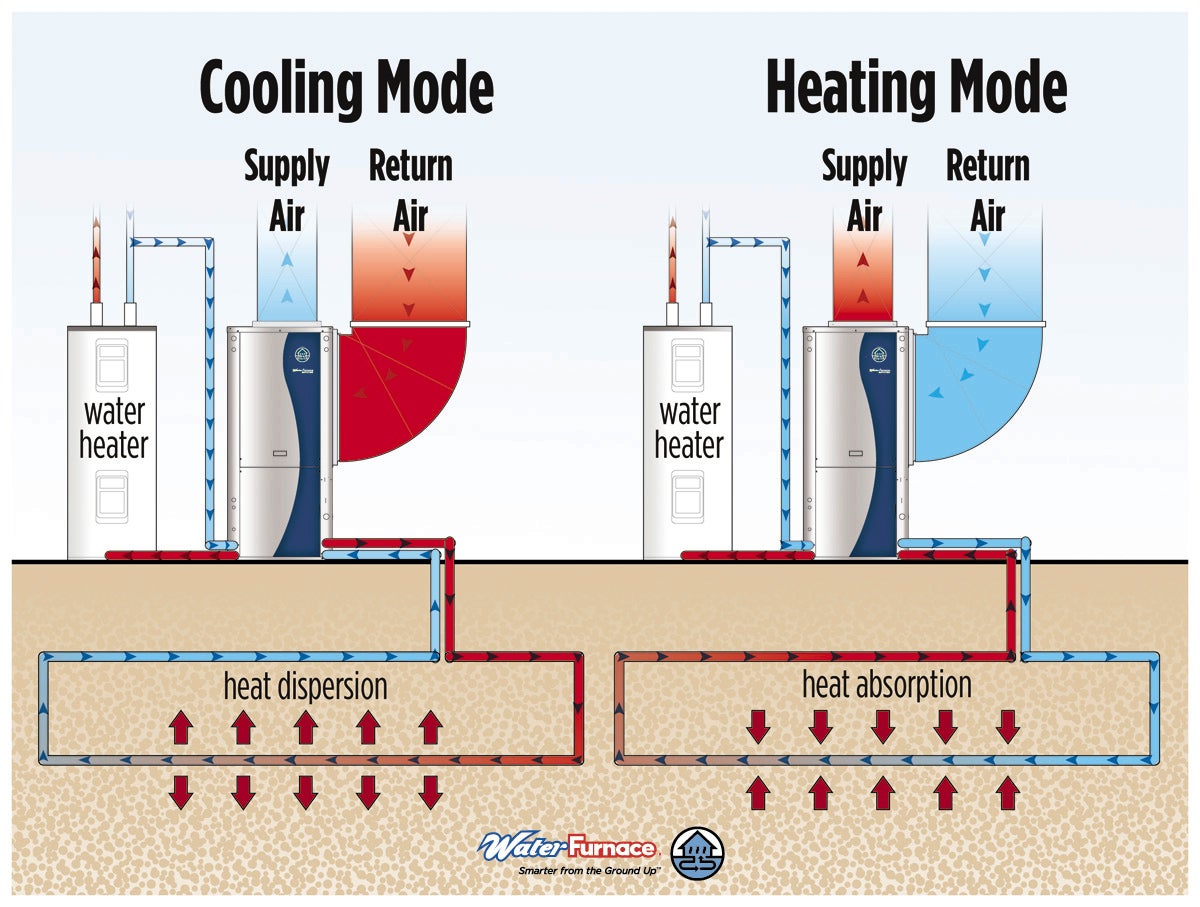Why consider installing a Ground or Geothermal Source Heat Pump (GSHP)? Here are just a few of the benefits:

Eco-friendly operation
Geothermal heating and cooling systems are simply one of the most environmentally-friendly ways to heat and cool your home. They don’t produce any carbon monoxide or any other greenhouse gasses that contribute both to your increased carbon footprint and air pollution.
A geothermal system also has a low electricity demand which in the course of a year could result in meaningful savings. If you are an eco-minded homeowner, switching to geothermal is one of the best choices you can make.
More affordable to operate
Despite the higher initial costs of purchasing and installing a geothermal heat pump, geothermal heating, and cooling technology boasts lower operating costs. You will see the savings over time.
A geothermal system offers a 400 percent efficiency rating, creating four units of energy for every unit of electrically produced energy. These systems simply transfer heat. They do not create it by burning fuel. They draw energy from the ground which results in most homeowners saving up to 70 percent on utility bills.
Positive cash flow
Most geothermal systems will end up paying for themselves in as little as three to five years. The amount of energy savings they produce can even exceed the cost of the system installation during that time.
Combine those savings with government tax credits, and your positive cash flow could start to occur in even less time. Knowing that you will get an ample return on your investment can take the sting out of the initial costs associated with purchasing and installing the geothermal system.
Life-cycle cost
Traditional HVAC systems tend to last about 10 years to 15 years on average, with regular maintenance. Since geothermal heating and cooling systems are not located directly outside, they are not subject to the normal weather-related wear and tear caused by ice, snow, or rain, for example. The indoor portion consists of a fan, compressor, and pump which can last for several decades. The rest of the system (the earth loop) is buried under the ground outside your house and can last for several generations. It is also nice not to have an unsightly outdoor unit that can detract from your home’s curb appeal.
Even better, the ground loop buried in your yard, consisting of the geothermal pipes, usually comes with a 50-year warranty. Geothermal systems also need little to no maintenance beyond periodic filter changes and yearly professional inspections.
Quieter operation
Geothermal systems don’t require any outdoor condensing units, and the indoor sections are designed to provide quiet operation. You won’t have to deal with the cooling or heating problems that you are likely to encounter with other systems.
Safety
Geothermal systems are safe and clean to operate. Since no combustion is involved, your family does not have to worry about typical concerns such as carbon monoxide poisoning. Geothermal technology uses free, renewable energy from the earth instead of flammable fossil fuels, making the entire system safer than any other system on the market.
A ready supply of hot water
This perk is one few homeowners realize as a major benefit of owning a geothermal system. Geothermal systems are capable of producing all the hot water you could want, and at higher efficiency rates than ordinary water heaters. You simply have to install a connection that allows the hot water to be stored in your home’s water heater.
For more information, please call CREC’s member services department (800-392-3709) to speak with someone about GSHPs.

